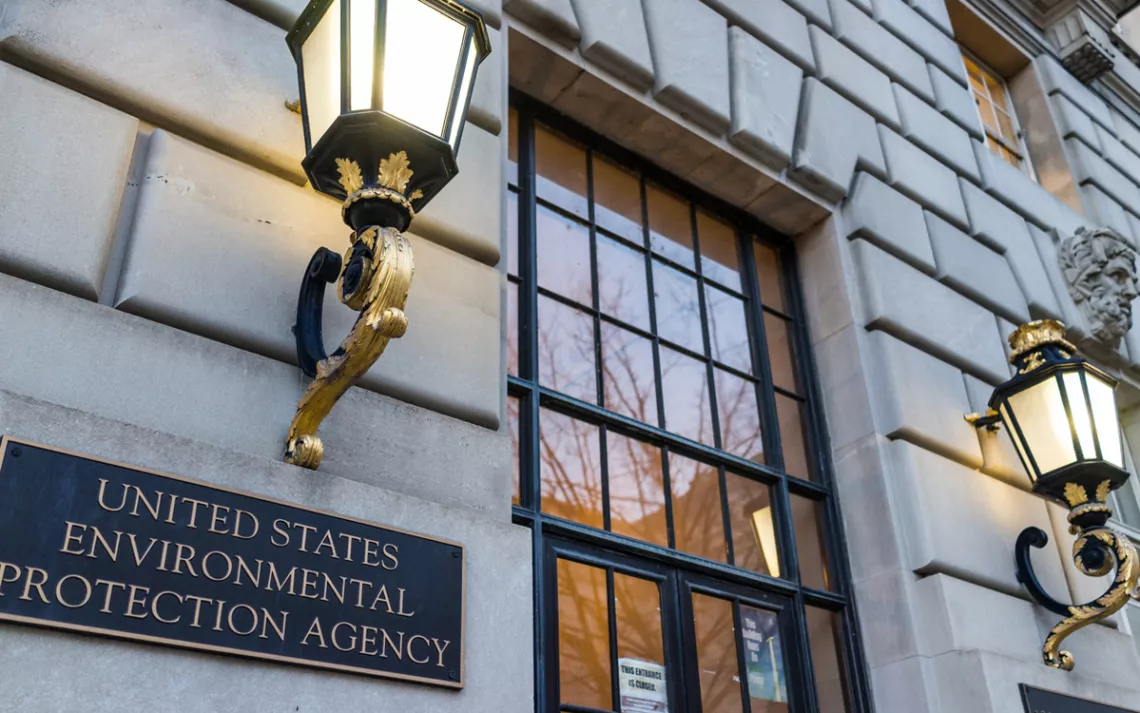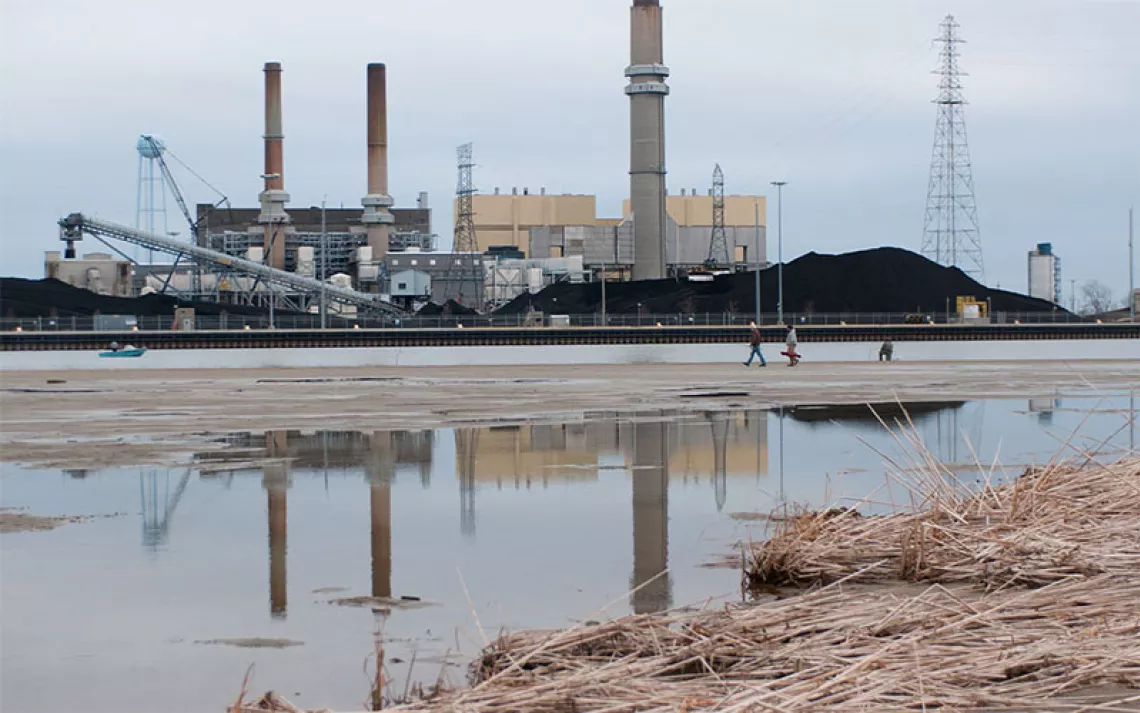Trump Administration Is the Greatest Threat the EPA Has Ever Faced
But if history repeats itself, a backlash is coming

Photo by krblokhin/iStock
The Trump administration is the greatest threat the EPA has ever faced. That’s the conclusion of a report compiled by the Environmental Data and Governance Initiative (EDGI), an international network of academics and nonprofits best known for spearheading the movement to archive public environmental data before Trump took office.
The report, which came out on June 20, is based on confidential interviews with 60 current and former employees of the Environmental Protection Agency and the Occupational Safety and Health Administration. The interviews with current employees describe an EPA that is becoming unmoored from its role as a public agency and turning into something of a private fiefdom for EPA head Scott Pruitt. These conversations revealed that managers who meet with Pruitt aren’t allowed to take notes, so as not to leave a paper trail that could be subject to FOIA (Freedom of Information Act) requests. Several EPA agents who previously investigated and prosecuted environmental crimes have been reassigned to serve as Pruitt’s 24/7 bodyguards.
While Pruitt has dismissed rumors that his staff have been seeking to close the EPA’s Region 5 office in Chicago, EPA staffers said that the rumors were real and that the attempted closure was retaliation for Region 5’s campaigning against Pruitt’s appointment. Interviewees said that the general consensus among career EPA staff was that Pruitt’s ultimate goal was not to weaken the EPA but to eliminate it entirely.
Pruitt isn’t the first EPA head with anti-EPA intentions. After the agency was created in 1970, during the Nixon administration, it enjoyed bipartisan support for several decades. In the middle of those decades, however, was Anne Gorsuch, a Reagan appointee who, like Pruitt, had a history of fighting the EPA. In Reagan’s first two years in office, the administration succeeded in reducing the EPA’s budget by 21 percent and staff by 26 percent. Gorsuch cut the agency’s ability to enforce environmental law dramatically by reassigning EPA attorneys working in the enforcement office, which develops and prosecutes pollution cases, to other departments. The number of civil cases referred from regional EPA divisions fell by 79 percent. When an oil refiner, Thriftway Company, informed Gorsuch that it was having trouble producing unleaded gasoline cheaply enough to keep its business profitable, she assured Thriftway that the EPA would not prosecute them for failing to meet lead standards.
The EPA’s response to Gorsuch was to begin, as one interviewee put it, “leaking like crazy” to sympathetic politicians and reporters. News coverage of what was happening inside of the EPA led to several congressional investigations beginning in 1982. When Gorsuch refused to hand over documents for an investigation about misuse of funds for the Superfund program, the House, which had a Democratic majority, found her in contempt of court, and Reagan forced her to step down in 1983. Gorsuch was bitter about the whole experience. “Mr. Reagan solved his problem by jettisoning me and my people, people [whose] only ‘crime’ was loyal service, following orders,” she later wrote in her autobiography.
It will take a much more spectacular scandal to remove Pruitt from the EPA, because without a Democratic majority in the House or the Senate, it will be hard to get the votes necessary to sponsor an investigation. In many ways, the report concludes, the situation the EPA faces is more like the one that Canadian scientists faced in 2011, after then–prime minister and second-generation oilman Stephen Harper won a parliamentary majority and used it to attack Canada’s federal science programs—particularly those that dealt with environmental monitoring. Like Trump, Harper withdrew from climate agreements, weakened environmental regulations, and barred federal scientists from speaking to the public about their work.
And like Trump’s, Harper’s attack on clean air and water seemed unassailable—until it wasn’t. Even with much of the legislative apparatus of government in his corner, Harper couldn’t change the underlying fact that clean air and water enjoy widespread public support. Science emerged as a major campaign issue during the 2015 election campaign and led to Harper’s defeat by Justin Trudeau, a prime minister who may not be universally adored in environmental circles, but who still has undone the Harper-era rules constraining federal scientists and restored funding to many environmental programs.
Many of the EPA employees interviewed for the report said that the agency’s problems today are the end result of another problem: polarization in politics. The bipartisan support that the agency enjoyed for decades began to wane in 1994, when a well-funded, explicitly anti-environmental strand of conservatism began to overwhelm more moderate Republican supporters of the EPA.
But Republicans do still cross the aisle sometimes when it comes to environmental issues. In May, the Senate rejected a bid to repeal an Obama-era methane rule that requires oil and gas companies to capture excess methane generated while drilling gas on public lands, instead of burning it off and sending more emissions into the atmosphere. This month, at a hearing where Scott Pruitt appeared to defend Trump’s proposed plan to cut the EPA’s budget by 31 percent, Pruitt was informed in no uncertain terms by members of the congressional committee responsible for the EPA budget that they would not support any budget cuts to environmental programs that affected their own constituents. Representative David Joyce (R-Ohio) said hands off the Great Lakes Initiative, and Representative Tom Cole (R-Okla.) said that his state was personally quite fond of the funding the EPA provided for water pollution control.
Still, these small victories are not enough to counter the damage being done over at the EPA right now. As one employee told EDGI in February, “This is unlike any transition I've been through . . . on so many different levels. . . . Like do we have a president who really believes in democracy? We have not had to deal with that before. Then on another level down, he said nothing about the EPA other than bad. So you are starting off with a lot of—there's a lot of overt hostility, which we've never had before. . . . By comparison the Bush . . . years were sweetness and light.” The Trump administration’s decision to not renew the appointments of 38 out of 49 advisers on the EPA’s Board of Scientific Counselors (BOSC) is a clear attempt to break up the independence and institutional memory of the agency.
However, the EPA’s secret weapon is that it’s popular. It’s a numbers game—the quantity of people who benefit from pollution—or who have the financial resources to keep themselves separate from its consequences—is always going to be smaller than the number of people who are harmed by it. The more regular Americans remind politicians of that fact, the more likely it is that the Trump administration’s plans for the agency will never come to fruition.
 The Magazine of The Sierra Club
The Magazine of The Sierra Club



